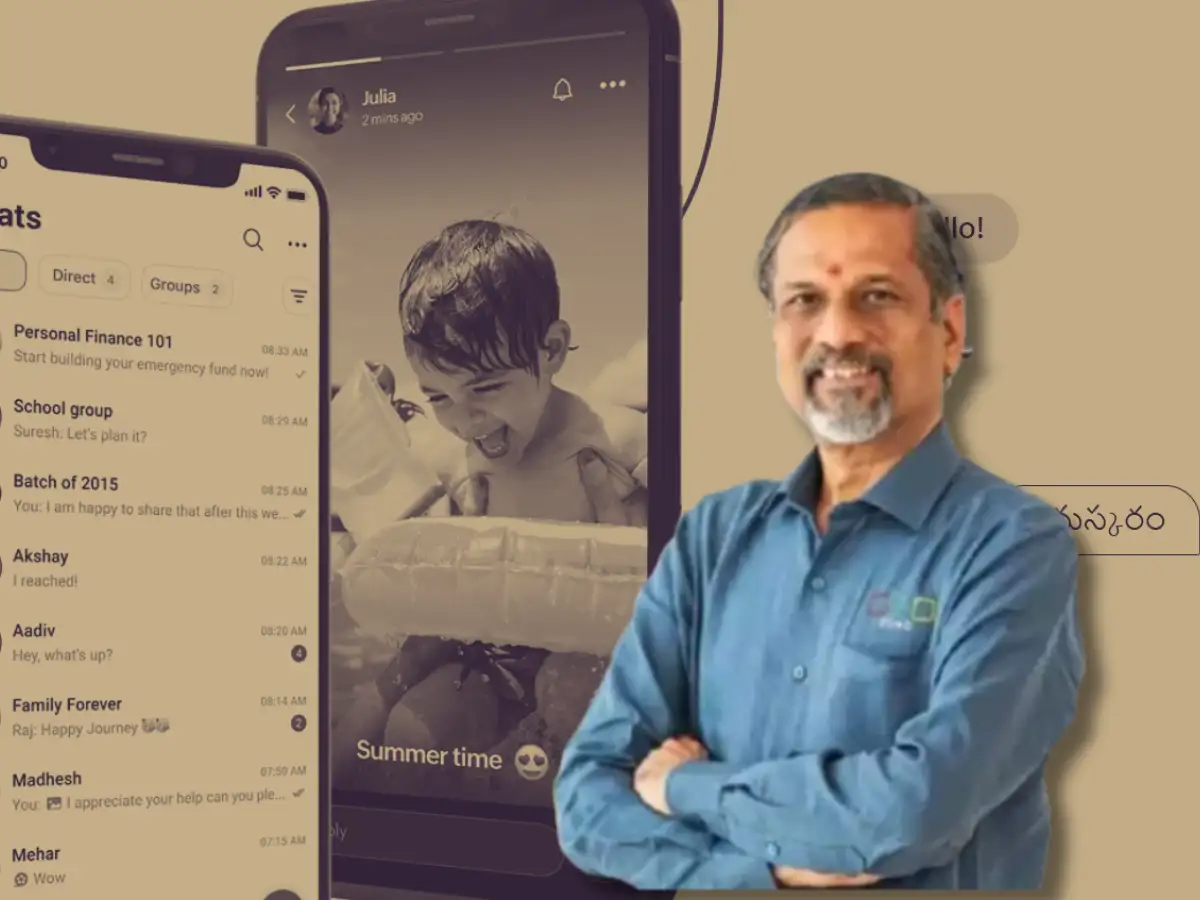Zoho bets on data sovereignty, ad-free model to scale as ministers rally behind local tech
By Suraksha P
Copyright indiatimes

“Trust is our currency,” says Zoho CEO Mani Vembu, who is betting on data localisation and an ad-free model to scale its homegrown messaging app Arattai and office suite, which have been endorsed by ministers.“If people believe in our promise of no ads and full privacy, engagement will follow naturally,” Vembu told ET as the government puts its weight behind homegrown platforms like Zoho and MapmyIndia.“We know the demand for a homegrown solution is real,” he said.Union ministers Ashwini Vaishnaw, Dharmendra Pradhan, Nirmala Sitharaman, and Piyush Goyal have all publicly endorsed Zoho’s office suite, Arattai, and MapmyIndia’s Mappls app as alternatives to offerings from Big Tech.This has led to a spurt in their popularity. Arattai, touted as ‘India’s WhatsApp’, saw a 100x traffic surge in just three days.The National Informatics Centre (NIC), the technology partner of the Indian government, has integrated Zoho’s office tools and collaboration services, marking a wider government pilot.Arattai is also being pitched as a potential digital public infrastructure (DPI) on the lines of the unified payments interface (UPI).Sridhar Vembu, Zoho’s co-founder, is already in talks with industry think tank Indian Software Products Industry Round Table’s (iSPIRT) founder Sharad Sharma for the same.iSPIRT is looking at having many front-ends or user interfaces, portability, and plug-and-play for innovation in the app. Arattai’s future model will also integrate payments and possibly AI agents.To sustain the rising popularity of Arattai, “we must keep the app safe, reliable and add relevant features — from better group management and payments integration to full encryption,” Mani Vembu said.He said advertising will never be part of Arattai, and that Zoho “will never sell user data to third parties.”He noted that India is Zoho’s fastest-growing market and the second biggest in the region.IT minister Vaishnaw in an X post said he used Zoho Show, a cloud-based presentation software, to create a presentation for his media briefing on Wednesday while the “map was sourced from Mappls.”“I am moving to Zoho — our own Swadeshi platform for documents, spreadsheets & presentations. I urge all to join the call for Swadeshi by adopting indigenous products and services,” he said in another post.Zoho already has some experience in handling government-scale workloads. For example, Tamil Nadu’s Covid war room ran on Zoho CRM; Chennai Corporation relied on Zoho Creator to monitor vaccination of over 3 lakh residents; and the Goa government used Zoho Forms for health data collection.NIC director general Abhishek Singh said its adoption of Zoho office tools is ongoing. “Zoho email is already being used in the government. We also have Zoho office productivity tools,” he said. “Arattai is a private platform that we have been using for a long time.”Singh noted that he had created the MyGov work group on Arattai way back in January 2021 during the Covid-19 pandemic.Beyond enterprise productivity, Zoho is doubling down on its consumer bet with Arattai. Breaking WhatsApp’s network effect dominance may be its toughest challenge.Vembu said the dramatic spike in Arattai’s traction “presented us with both an exciting opportunity and significant technical challenges.”The firm’s engineering team is scaling infrastructure aggressively. “We’ve rapidly expanded server capacity, while keeping encryption and security non-negotiable. Audio and video calls are already end-to-end encrypted, and in the coming months we will close the loop for other encryption layers,” he said.Zoho framed its 20–30 year vision as “transnational localism” — globally usable tech that stays rooted in local needs.“Arattai was developed for the Indian diaspora but can be used everywhere,” Vembu said. “We are adding more languages, regional sticker packs, and building for rural and low-connectivity users,” he said.“It’s not just about having indigenous tech, but about building commendable products that users find value in. Our long-term goal is deep R&D, strong sovereign infrastructure, and supporting India’s digital needs across businesses and government bodies,” he said.About making Arattai a DPI, Zoho co-founder Sridhar Vembu in an X post had said, “We want to standardise and publish the messaging protocols. These systems need to be interoperable like UPI and email, and not closed like WhatsApp today. We do not want to be a monopoly ever.”iSPIRT’s Sharma echoed that vision. “We will work together to make Arattai like a DPI. The foundational tech is already there. We are looking at having many front-ends, plus privacy, portability, plug-and-play for new innovation. In the new category, payments will be there. We also need to consider AI agents and the needs of Global South policymakers for transparency, localisation and digital sovereignty,” he said on X.



